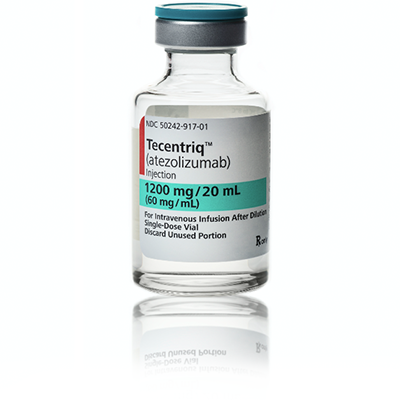CANCER DIGEST – Oct. 4, 2016 – The FDA approval of Tecentriq ushers in the first new treatment for advanced bladder cancer in 30 years.
The drug works by blocking a protein tumor cells produce on their cell surfaces that prevents the immune system’s T cells from attacking the cancer cells. The protein tumors produce is known as an "immune checkpoint," that prevents T cells from recognizing and binding to the cancer cell, thus evading the T cell attack. This "checkpoint" protein is called PD-L1 and Tecentriq binds to it allowing T cells to land and establish a beachhead to attack the cancer cell.
The FDA approval of Tecentriq In May 2016 was based in part on a clinical trial involving 310 patients with bladder cancer that showed 14.8 percent of patients treated with Tecentriqu saw their tumors shrink, and in those whose tumors had high levels of PD-L1 26 percent saw tumor shrinkage. That compared to 9.5 percent of those who tumors expressed low levels of PD-L1.
The most common side effects of treatment with Tecentriq were fatigue, decreased appetite, nausea, urinary tract infection, fever (pyrexia) and constipation.
“Tecentriq provides these patients with a new therapy targeting the PD-L1 pathway,” said Richard Pazdur, M.D., director of the Office of Hematology and Oncology Products in the FDA’s Center for Drug Evaluation and Research. “Products that block PD-1/PD-L1 interactions are part of an evolving story about the relationship between the body’s immune system and its interaction with cancer cells.”
The National Cancer Institute (NCI) estimates 76,960 new cases of bladder cancer and 16,390 deaths from the disease in 2016.



No comments:
Post a Comment